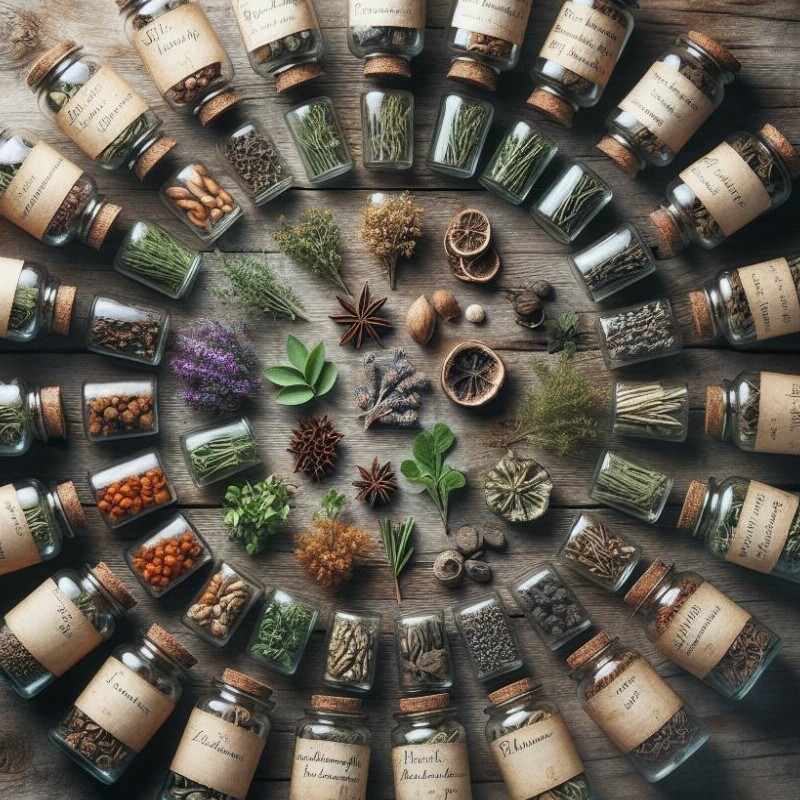
Define what constitutes an ‘uncommon’ herbal remedy
An ‘uncommon’ herbal remedy refers to a herbal remedy that is less widely known or used compared to more popular or commonly recognized herbs. These remedies may come from lesser-known plants or have traditional uses specific to certain cultures or regions.
The term ‘uncommon’ can also refer to herbal remedies that are not as readily available in mainstream markets or commercial herbal products. They may require a bit more effort to source or may be less commonly recommended by healthcare professionals.
It’s important to note that the term ‘uncommon’ is relative and can vary depending on factors such as cultural traditions, geographical location, and personal knowledge or exposure to herbal remedies. What may be considered uncommon in one context or region could be widely known and used in another.
When exploring uncommon herbal remedies, it’s essential to conduct thorough research, consult reputable sources, and seek guidance from qualified herbalists or healthcare professionals. They can provide valuable insights, safety information, and dosage guidelines for these lesser-known remedies.
Remember, the effectiveness and safety of any herbal remedy can vary, and it’s always advisable to exercise caution and consult with experts before incorporating them into your health routine.
The importance of consulting with healthcare professionals before trying new remedies

Consulting with healthcare professionals before trying new remedies is of utmost importance. Here are a few reasons why it is crucial:
1. Safety: Healthcare professionals, such as doctors, herbalists, or naturopaths, have the knowledge and expertise to assess your health condition, medical history, and potential interactions with medications. They can provide guidance on the safety and appropriateness of specific herbal remedies for your individual circumstances.
2. Effectiveness: Healthcare professionals can offer insights into the potential effectiveness of herbal remedies based on scientific evidence, traditional knowledge, and clinical experience. They can help you understand the expected benefits and limitations of different remedies, ensuring you make informed decisions.
3. Individual Variations: Every individual is unique, and what works for one person may not work the same way for another. Healthcare professionals can consider your specific health needs, allergies, sensitivities, and other factors to recommend remedies that are tailored to your situation.
4. Avoiding Interactions: Herbal remedies can interact with medications, supplements, or existing health conditions. Consulting with a healthcare professional can help identify potential interactions and prevent any adverse effects or complications.
5. Monitoring and Follow-up: Healthcare professionals can monitor your progress, provide ongoing support, and make necessary adjustments to your treatment plan if needed. They can also guide you on proper dosage, duration of use, and potential side effects to watch out for.
6. Evidence-based Practice: Healthcare professionals base their recommendations on scientific evidence, research, and clinical experience. They can help you differentiate between evidence-based information and anecdotal claims, ensuring you receive accurate and reliable guidance.
Remember, herbal remedies are not a substitute for professional medical advice, diagnosis, or treatment. Consulting with healthcare professionals can help ensure your safety, optimize the effectiveness of remedies, and provide you with comprehensive care.
It’s important to have open and honest communication with your healthcare provider, sharing your interest in herbal remedies and discussing any concerns or questions you may have. They can work with you to develop a well-rounded approach to your health and well-being.)
Examples of lesser-known plants that are used in uncommon herbal remedies:
1. Elecampane (Inula helenium): The root of the elecampane plant is used in traditional herbal medicine for respiratory conditions such as coughs, bronchitis, and asthma. It is known for its expectorant and soothing properties.
2. Calendula (Calendula officinalis): Calendula, also known as marigold, is a beautiful flower with medicinal properties. It is used in herbal remedies for its anti-inflammatory, antimicrobial, and skin-soothing effects. Calendula is often used in creams, ointments, and teas for skin conditions, wounds, and digestive issues.
3. Yarrow (Achillea millefolium): Yarrow is a flowering plant that has been used in traditional medicine for centuries. It is known for its astringent, anti-inflammatory, and antimicrobial properties. Yarrow is used in herbal remedies for various conditions, including digestive issues, menstrual problems, and wound healing.
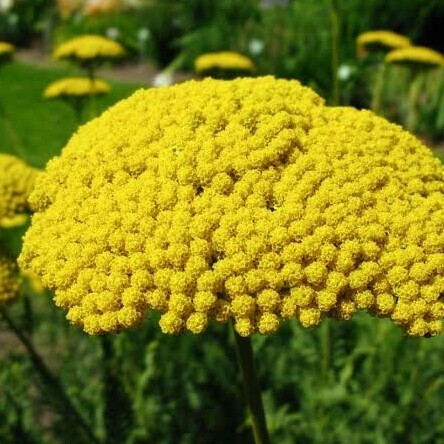
4. Skullcap (Scutellaria lateriflora): Skullcap is a perennial herb that is used in herbal medicine for its calming and sedative properties. It is often used as a natural remedy for anxiety, insomnia, and nervous system disorders.
5. Wood Betony (Stachys officinalis): Wood betony is a herbaceous perOOoennial plant that has been used in traditional herbal medicine for its tonic and relaxant properties. It is often used in herbal remedies for headaches, migraines, and nervous system support.
6. Mullein (Verbascum thapsus): Mullein is a biennial plant known for its tall, fuzzy leaves and yellow flowers. It has been used in herbal remedies for respiratory conditions such as coughs, congestion, and bronchitis. Mullein is often prepared as a tea or used in herbal respiratory blends.
These are just a few examples of lesser-known plants used in uncommon herbal remedies. It’s important to note that the effectiveness and safety of these remedies can vary, and it’s advisable to consult with a qualified herbalist or healthcare professional before using them.
Remember, herbal remedies should be used with caution, and it’s essential to consider individual health conditions, allergies, and potential interactions with medications.
Rare Herbs with Potent Healing Properties
Overview of lesser-known herbs with potential health benefits
1. Ashwagandha (Withania somnifera): Ashwagandha is an adaptogenic herb used in traditional Ayurvedic medicine. It is believed to support stress reduction, improve mood, enhance cognitive function, and boost energy levels.
2. Bacopa (Bacopa monnieri): Bacopa is an herb known for its cognitive-enhancing properties. It is believed to improve memory, concentration, and overall brain function. Bacopa is commonly used in traditional Ayurvedic medicine.
3. Gotu Kola (Centella asiatica): Gotu kola is an herb with a long history of use in traditional Chinese and Ayurvedic medicine. It is believed to support cognitive function, improve circulation, promote wound healing, and reduce anxiety and stress.
4. Siberian Ginseng (Eleutherococcus senticosus): Siberian ginseng, also known as Eleuthero, is an adaptogenic herb used in traditional Chinese medicine. It is believed to enhance stamina, boost the immune system, reduce fatigue, and support overall well-being.
5. Schisandra (Schisandra chinensis): Schisandra is an adaptogenic herb used in traditional Chinese medicine. It is believed to improve mental performance, increase endurance, support liver health, and enhance overall vitality.
6. Maca (Lepidium meyenii): Maca is a root vegetable native to the Andes of Peru. It is often consumed as a powder and is believed to support hormonal balance, enhance energy levels, boost libido, and improve mood.
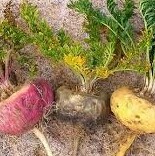
7. Passionflower (Passiflora incarnata): Passionflower is an herb known for its calming and sedative properties. It is often used to promote relaxation, relieve anxiety and insomnia, and support overall mental well-being.
8. Lemon Balm (Melissa officinalis): Lemon balm is an herb with a lemony scent and taste. It is believed to have calming effects, promote relaxation, improve sleep quality, and support digestive health.
9. Nettle (Urtica dioica): Nettle is an herb commonly used in traditional herbal medicine. It is rich in nutrients and is believed to have anti-inflammatory properties, support urinary health, and relieve seasonal allergies.
10. Yerba Mate (Ilex paraguariensis): Yerba mate is a traditional South American herb known for its stimulating effects. It contains caffeine and antioxidants and is often consumed as a tea to boost energy, improve focus, and support overall well-being.
Detailed information about each rare herb.
Ashwagandha is a popular herb used in traditional Ayurvedic medicine for its potential health benefits. Here is some detailed information about Ashwagandha:
Overview: Ashwagandha, also known as Withania somnifera or Indian ginseng, is a small shrub native to India, the Middle East, and parts of Africa. It has been used for centuries in Ayurvedic medicine to promote overall well-being and support various aspects of health.
Health Benefits:
1. Stress and Anxiety Reduction: Ashwagandha is classified as an adaptogenic herb, which means it may help the body cope with stress. It is believed to reduce cortisol levels, a hormone associated with stress, and promote a sense of calm and relaxation.
2. Improved Cognitive Function: Ashwagandha may have cognitive-enhancing properties. It is thought to support memory, focus, and mental clarity. Some studies suggest that it may have a positive impact on cognitive performance and attention.
3. Energy and Vitality: Ashwagandha is believed to enhance energy levels and improve overall vitality. It may help combat fatigue and increase endurance, making it beneficial for individuals experiencing low energy levels or physical exhaustion.
4. Mood Enhancement: Ashwagandha may have mood-stabilizing effects and may help improve symptoms of depression and anxiety. It is thought to promote a sense of well-being and emotional balance.
5. Immune System Support: Ashwagandha has been traditionally used for its immune-boosting properties. It may help strengthen the immune system and support overall immune function.
6. Anti-inflammatory Effects: Ashwagandha contains compounds with potential anti-inflammatory properties. It may help reduce inflammation in the body, which is associated with various chronic conditions.
7. Hormonal Balance: Ashwagandha is believed to have adaptogenic effects on hormonal balance. It may help regulate cortisol levels, support thyroid function, and promote hormonal equilibrium.
Usage and Dosage: Ashwagandha is available in various forms, including capsules, powders, and liquid extracts. The appropriate dosage can vary depending on factors such as age, health condition, and the form of Ashwagandha used. It is recommended to follow the instructions on the product label or consult with a healthcare professional for guidance on the appropriate dosage.
Possible Side Effects: Ashwagandha is generally considered safe for most people when used appropriately. However, some individuals may experience mild side effects such as stomach upset, diarrhea, or allergic reactions. It is advisable to start with a lower dosage and gradually increase to assess individual tolerance.
Precautions: Ashwagandha may interact with certain medications, including immunosuppressants, sedatives, and thyroid medications. It is important to consult with a healthcare professional before using Ashwagandha, especially if you have underlying health conditions or are taking medications.
Please note that the information provided here is for informational purposes only and should not replace professional medical advice. It is always advisable to consult with a healthcare professional before starting any new herbal supplement or treatment.
Bacopa, also known as Bacopa monnieri or Brahmi, is an herb that has been used for centuries in traditional Ayurvedic medicine. Here is some detailed information about Bacopa.
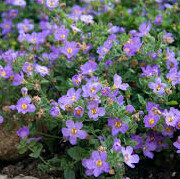 9
9
Overview: Bacopa is a small, creeping herb native to wetlands in India, Southeast Asia, and other parts of the world. It is known for its potential cognitive-enhancing properties and has been traditionally used to support memory, focus, and overall brain function.
Health Benefits:
1. Cognitive Function: Bacopa is often used for its potential benefits on memory and attention. Some studies suggest that Bacopa may help improve certain aspects of memory, including logical and verbal memory. However, the overall evidence is mixed, and more research is needed to fully understand its effects on cognitive function.
2. Stress Reduction: Bacopa is classified as an adaptogenic herb, which means it may help the body adapt to stress and promote a sense of calm. It is believed to have anxiolytic properties and may help reduce symptoms of anxiety and stress.
3. Antioxidant Effects: Bacopa contains compounds with antioxidant properties, such as bacosides. These compounds help protect cells from oxidative stress and may have potential neuroprotective effects.
4. Anti-inflammatory Properties: Bacopa has been found to possess anti-inflammatory properties, which may contribute to its potential benefits on brain health and overall well-being.
5. Potential Mood Enhancement: Some studies suggest that Bacopa may have mood-enhancing effects, promoting a positive mood and emotional well-being.
Usage and Dosage: Bacopa is available in various forms, including capsules, powders, and liquid extracts. The appropriate dosage can vary depending on factors such as age, health condition, and the form of Bacopa used. It is recommended to follow the instructions on the product label or consult with a healthcare professional for guidance on the appropriate dosage.
Possible Side Effects: Bacopa is generally considered safe for most people when used appropriately. However, some individuals may experience mild side effects such as stomach upset, nausea, or dry mouth. It is advisable to start with a lower dosage and gradually increase to assess individual tolerance. Rarely, Bacopa may cause allergic reactions in some individuals.
Precautions: Bacopa may interact with certain medications, including sedatives, antipsychotics, and medications used for thyroid disorders. It is important to consult with a healthcare professional before using Bacopa, especially if you have underlying health conditions or are taking medications.
Please note that the information provided here is for informational purposes only and should not replace professional medical advice. It is always advisable to consult with a healthcare professional before starting any new herbal supplement or treatment.
Gotu Kola, also known as Centella asiatica or Indian pennywort, is an herb that has been used for centuries in traditional medicine, particularly in Ayurvedic and Chinese medicine. Here is some detailed information about Gotu Kola:
Overview: Gotu Kola is a small, herbaceous plant native to Asia. It is characterized by its fan-shaped leaves and is often used for its potential health benefits.
Health Benefits:
1. Cognitive Function: Gotu Kola has been traditionally used to support cognitive function and improve memory. It is believed to enhance brain function, increase mental clarity, and improve focus.
2. Anxiety and Stress Reduction: Gotu Kola is classified as an adaptogenic herb, which means it may help the body cope with stress. It is believed to have anxiolytic properties, helping to reduce anxiety and stress levels.
3. Depression and Mood Enhancement: Some studies suggest that Gotu Kola may have antidepressant effects, potentially improving symptoms of depression. It is believed to support emotional well-being and promote a positive mood.
4. Wound Healing: Gotu Kola has been used topically to promote wound healing and reduce the appearance of scars. It is believed to stimulate collagen production, improve circulation, and support the regeneration of skin cells.
5. Anti-inflammatory Effects: Gotu Kola contains compounds with anti-inflammatory properties. It is believed to help reduce inflammation in the body, which may contribute to its potential benefits on various health conditions.
6. Venous Insufficiency: Gotu Kola has been used to support venous health and improve symptoms of venous insufficiency, such as varicose veins and swelling in the legs.
7. Skin Health: Gotu Kola is often used in skincare products for its potential benefits on skin health. It is believed to have antioxidant properties, promote collagen synthesis, and improve the overall appearance of the skin.
Usage and Dosage: Gotu Kola is available in various forms, including capsules, powders, and topical creams or ointments. The appropriate dosage can vary depending on factors such as age, health condition, and the form of Gotu Kola used. It is recommended to follow the instructions on the product label or consult with a healthcare professional for guidance on the appropriate dosage.
Possible Side Effects: Gotu Kola is generally considered safe for most people when used appropriately. However, some individuals may experience mild side effects such as headache, stomach upset, or allergic reactions. It is advisable to start with a lower dosage and gradually increase to assess individual tolerance.
Precautions: Gotu Kola may interact with certain medications, such as blood thinners or medications for diabetes. It is important to consult with a healthcare professional before using Gotu Kola, especially if you have underlying health conditions or are taking medications.
Please note that the information provided here is for informational purposes only and should not replace professional medical advice. It is always advisable to consult with a healthcare professional before starting any new herbal supplement or treatment.
Siberian Ginseng, also known as Eleutherococcus senticosus or Eleuthero, is an herb that has been used in traditional medicine, particularly in Siberia and other parts of Asia. Here is some detailed information about Siberian Ginseng:
Overview: Siberian Ginseng is a small shrub native to Northeast Asia. It is often referred to as an adaptogenic herb, which means it may help the body adapt to stress and promote overall well-being.
Health Benefits:
1. Energy and Vitality: Siberian Ginseng is believed to have energizing properties and may help improve stamina and endurance. It is often used to combat fatigue, increase physical performance, and enhance overall vitality.
2. Immune System Support: Siberian Ginseng is known for its potential immune-boosting effects. It is believed to stimulate the immune system, helping to strengthen the body’s natural defense mechanisms and support overall immune function.
3. Mental Performance and Mental Health: Siberian Ginseng is often used to support mental performance and cognitive function. It is believed to enhance focus, concentration, and memory. It may also have potential benefits for mental health by promoting a sense of calm and reducing symptoms of anxiety and depression.
4. Anti-inflammatory Effects: Siberian Ginseng contains compounds with potential anti-inflammatory properties. It may help reduce inflammation in the body, which is associated with various chronic conditions.
5. Blood Sugar Regulation: Siberian Ginseng has been studied for its potential effects on blood sugar levels. It may help regulate blood sugar levels, which is beneficial for individuals with diabetes or those at risk of developing diabetes.
6. Longevity and Anti-aging: Siberian Ginseng is believed to have antioxidant properties, which may help protect cells from oxidative damage and contribute to longevity and anti-aging effects.
Usage and Dosage: Siberian Ginseng is available in various forms, including capsules, powders, and liquid extracts. The appropriate dosage can vary depending on factors such as age, health condition, and the form of Siberian Ginseng used. It is recommended to follow the instructions on the product label or consult with a healthcare professional for guidance on the appropriate dosage.
Possible Side Effects: Siberian Ginseng is generally considered safe for most people when used appropriately. However, some individuals may experience mild side effects such as headache, insomnia, or gastrointestinal upset. It is advisable to start with a lower dosage and gradually increase to assess individual tolerance.
Precautions: Siberian Ginseng may interact with certain medications, including blood thinners, anticoagulants, and medications for diabetes. It is important to consult with a healthcare professional before using Siberian Ginseng, especially if you have underlying health conditions or are taking medications.
Please note that the information provided here is for informational purposes only and should not replace professional medical advice. It is always advisable to consult with a healthcare professional before starting any new herbal supplement or treatment.
Schisandra, also known as Schisandra chinensis, is a berry-producing vine native to China and Russia. It has been used for centuries in traditional Chinese medicine for its potential health benefits. Here is some detailed information about Schisandra:
Overview: Schisandra is an adaptogenic herb, meaning it may help the body adapt to stress and promote overall well-being. It is known for its unique combination of five flavors: sweet, sour, salty, bitter, and pungent.
Health Benefits:
1. Antioxidant and Anti-inflammatory Effects: Schisandra is rich in antioxidants, which help fight free radicals and reduce oxidative stress in the body. It may help lower inflammation and protect against chronic diseases like cancer, diabetes, and heart disease.
2. Liver Health: Schisandra is believed to have hepatoprotective properties, supporting liver health and promoting detoxification. It may help protect the liver from damage caused by toxins, alcohol, and medications.
3. Adaptogenic Effects: Schisandra is considered an adaptogen, which means it may help the body cope with physical and mental stress. It may enhance endurance, reduce fatigue, and improve overall resilience.
4. Cognitive Function: Schisandra is believed to support cognitive function and mental performance. It may help improve concentration, memory, and focus.
5. Stress Reduction and Mood Enhancement: Schisandra may have calming and mood-enhancing effects. It is believed to help reduce anxiety, improve sleep quality, and promote a sense of well-being.
6. Physical Performance: Schisandra is thought to enhance physical performance and increase stamina. It may improve exercise endurance and recovery.
7. Skin Health: Schisandra is often used in skincare products for its potential benefits on the skin. It is believed to have anti-aging effects, promote skin elasticity, and protect against UV damage.
Usage and Dosage: Schisandra is available in various forms, including capsules, powders, extracts, and teas. The appropriate dosage can vary depending on factors such as age, health condition, and the form of Schisandra used. It is recommended to follow the instructions on the product label or consult with a healthcare professional for guidance on the appropriate dosage.
Possible Side Effects: Schisandra is generally considered safe for most people when used appropriately. However, some individuals may experience mild side effects such as digestive upset, skin rash, or allergic reactions. It is advisable to start with a lower dosage and gradually increase to assess individual tolerance.
Precautions: Schisandra may interact with certain medications, including anticoagulants, anticonvulsants, and medications metabolized by the liver. It is important to consult with a healthcare professional before using Schisandra, especially if you have underlying health conditions or are taking medications.
Please note that the information provided here is for informational purposes only and should not replace professional medical advice. It is always advisable to consult with a healthcare professional before starting any new herbal supplement or treatment.
Maca, also known as Lepidium meyenii, is a root vegetable native to the Andes of Peru. It has been used for thousands of years as a food source and traditional medicine. Here is some detailed information about Maca:
Overview: Maca belongs to the brassica family and is closely related to radishes and turnips. It is available in various forms, including powder, capsules, and extracts, and is commonly consumed as a dietary supplement.
Health Benefits:
1. Libido and Sexual Function: Maca is often used for its potential benefits on sexual health. It is believed to enhance libido, improve sexual function, and increase fertility in both men and women. However, the evidence supporting these claims is limited, and more research is needed to fully understand its effects.
2. Hormonal Balance: Maca is believed to have adaptogenic effects on hormonal balance. It may help regulate hormone levels, particularly in women experiencing menopause or menstrual irregularities. It is thought to alleviate symptoms such as hot flashes, mood swings, and sleep disturbances.
3. Energy and Stamina: Maca is often used to boost energy levels and enhance stamina. It is believed to improve physical performance and reduce fatigue, making it popular among athletes and individuals seeking a natural energy boost.
4. Mood Enhancement: Maca is thought to have mood-enhancing properties. It may help reduce symptoms of depression and anxiety, promote a positive mood, and improve overall well-being.
5. Nutritional Content: Maca is rich in various nutrients, including vitamins (such as vitamin C, B vitamins, and vitamin E), minerals (such as iron, calcium, and zinc), and antioxidants. It can be a valuable addition to a balanced diet, providing essential nutrients.
Usage and Dosage: Maca is available in various forms, including powder, capsules, and extracts. The appropriate dosage can vary depending on factors such as age, health condition, and the form of Maca used. It is recommended to follow the instructions on the product label or consult with a healthcare professional for guidance on the appropriate dosage.
Possible Side Effects: Maca is generally considered safe for most people when used appropriately. However, some individuals may experience mild side effects such as digestive upset, headaches, or changes in hormone levels. It is advisable to start with a lower dosage and gradually increase to assess individual tolerance.
Precautions: Maca may interact with certain medications, including hormone-sensitive medications, medications for diabetes, and blood pressure medications. It is important to consult with a healthcare professional before using Maca, especially if you have underlying health conditions or are taking medications.
Please note that the information provided here is for informational purposes only and should not replace professional medical advice. It is always advisable to consult with a healthcare professional before starting any new herbal supplement or treatment.
Tips for integrating new herbs into daily life
The role of dosage and form (teas, extracts, oils) in herbal remedies
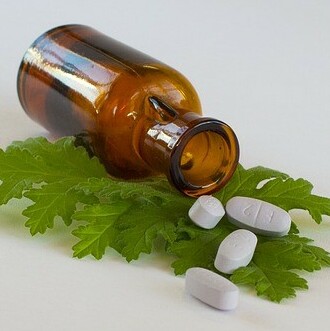
The role of dosage and form in herbal remedies is quite significant. These factors can determine how effective the remedy is and how it interacts with your body.
1. Dosage: The amount of an herbal remedy you take at one time can greatly affect its efficacy. Too little may not produce the desired effects, and too much could potentially be harmful. The correct dosage often depends on the specific herb, the individual’s body weight, age, and overall health status. It’s always recommended to follow the instructions on the product label or consult with a healthcare professional.
2. Form: The form in which you take an herbal remedy can also impact its effectiveness. Some forms may be more potent or easier for the body to absorb.
Teas: Herbal teas are a popular way to consume herbs. The active ingredients are extracted into the water, which is then drunk. This method can be effective for herbs that are easily water-soluble and for conditions that benefit from hydration.
Extracts: These are typically more concentrated than teas. They can be made with alcohol, water, or other solvents that pull out the active components of the herb. Extracts can be taken directly or added to a beverage.
Oils: Essential oils are highly concentrated and typically used externally, although some can be ingested. They’re often used in aromatherapy or massaged into the skin.
Remember, while herbal remedies can be beneficial, they should be used responsibly. They’re not a substitute for professional medical advice and treatment, especially for serious or chronic conditions. Always consult with a healthcare professional before starting any new herbal regimen.
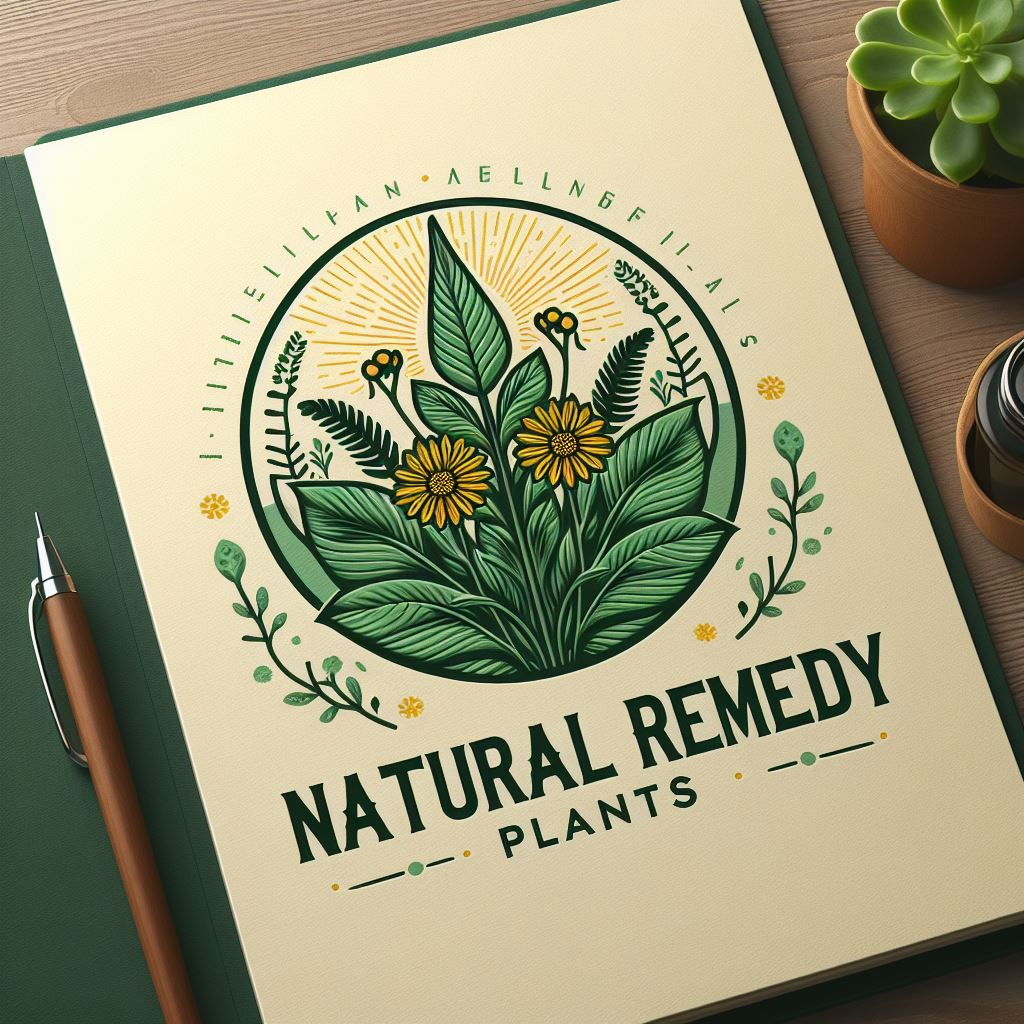
Hi,
Examining the realm of uncommon herbal remedies leads to an intriguing conversation about striking a balance between conventional wisdom and contemporary medical procedures. And it makes me wonder: How can we successfully close the knowledge gap between traditional herbal remedies and modern scientific verification to make sure that these treatments are safe and efficient? Furthermore, in the interest of holistic health, what actions can people take to appropriately incorporate these unusual herbs into their wellness regimens so that they work in harmony rather than in opposition to current medical interventions or prescription drugs? This conversation emphasizes the value of well-informed inquiry and the potential benefits of these natural remedies for improving overall health and wellness.
Closing the knowledge gap between traditional herbal remedies and modern scientific verification involves several steps. Here’s a potential approach:
1. Scientific Research and Clinical Trials: The first step is to conduct comprehensive scientific research and clinical trials on traditional herbal remedies. This includes in vitro, in vivo, and human trials to understand the efficacy and potential side effects of these remedies.
2. Documentation and Database Creation: There needs to be a systematic documentation of traditional knowledge, including the types of herbs used, their medicinal properties, preparation methods, and dosage. This can be used to create a comprehensive database that can be accessed by researchers and healthcare professionals.
3. Collaboration and Dialogue: There should be a continuous dialogue and collaboration between traditional herbal practitioners and modern scientists. This can help bridge the gap between the two fields and promote mutual learning.
4. Regulation and Standardization: Regulatory bodies need to set standards for the production, marketing, and use of herbal remedies. This can ensure the safety and quality of these products.
5. Education and Awareness: Finally, there needs to be an emphasis on education and awareness. Both consumers and healthcare professionals need to be educated about the benefits and potential risks of herbal remedies.
This is a complex issue that requires the cooperation of many stakeholders, including scientists, traditional practitioners, regulatory bodies, and the public. It’s a long-term process but with the right approach, we can ensure that traditional herbal remedies are safe and effective.